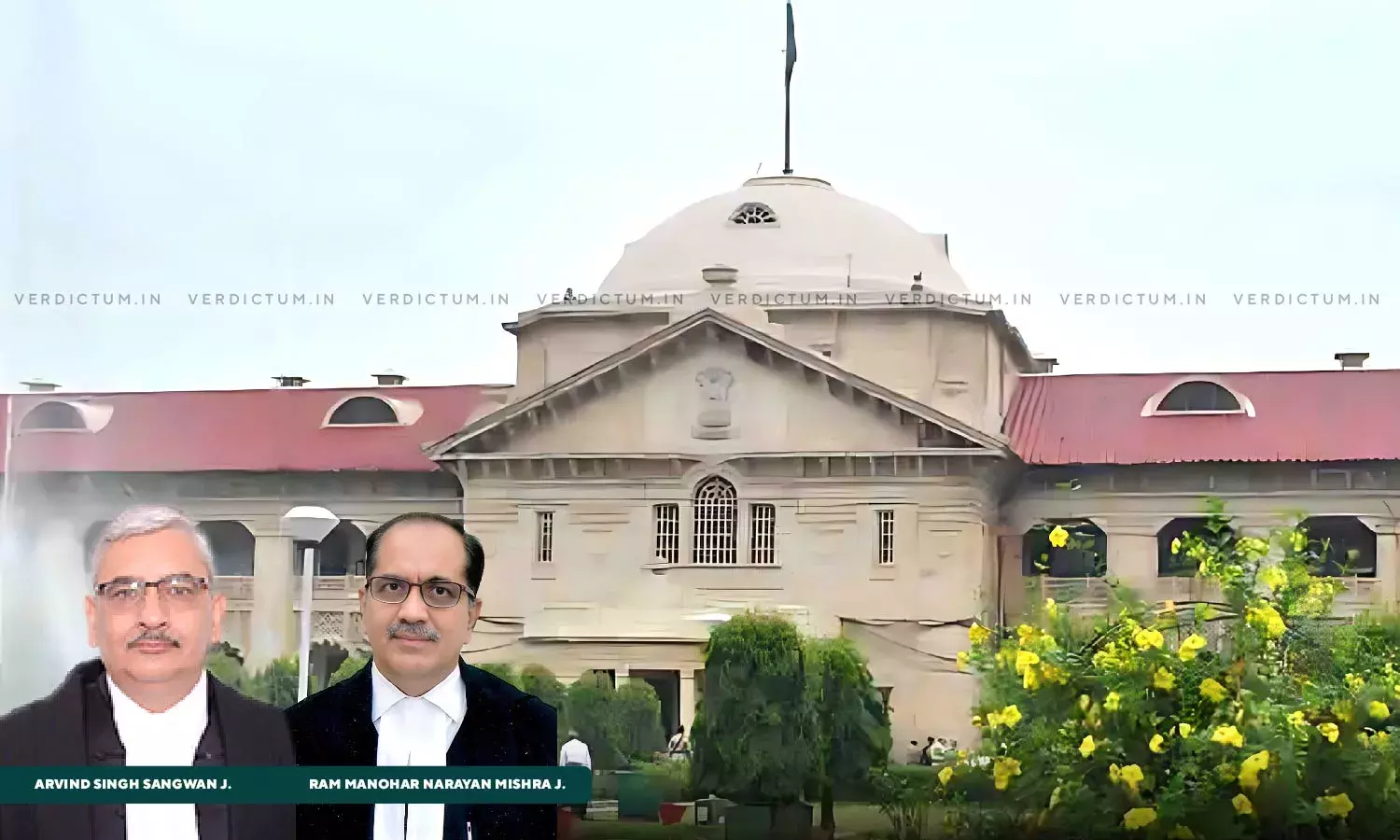"He Has Wife & Kids; No Criminal History; Not Rarest Of Rare Case": Allahabad HC Commutes Death Sentence Of Man Convicted For Murdering His Wife's Grandmother
The Allahabad High Court has commuted the death sentence of a 45-year-old man convicted for murdering his wife's grandmother with a screwdriver to life imprisonment.
To that end, the Bench of Justice Arvind Singh Sangwan and Justice Ram Manohar Narayan Mishra observed that, 'the appellant has no criminal history and has stated that he has two young children and wife to support and has pleaded that he may be given pardon. The appellant is aged about 45 years. Therefore, we unable to uphold the capital punishment awarded by the trial court as it is not a "rarest of rare" case.'
The deceased and her maid were alone at home while the other family members were out watching a film. Around 2:15 p.m., the convict arrived, went to the deceased's room, and asked the maid to prepare tea. After the tea was made, he told the maid to leave it as he would serve himself.
At 4:00 p.m., the convict called the maid to the room, where she found the deceased lying dead, and the convict holding a screwdriver. The convict attacked the maid with a piece of mirror, causing injuries to her head, arms, and neck. He told her he couldn't leave her alive as she was a witness. She fell unconscious, and the convict left with cash and gold and silver jewellery.
After a thorough investigation, the convict was arrested, and the stolen valuables and cash were recovered from his home. The police informed him about the FIR and his involvement in the crime, upon which he revealed the concealed items.
The maid's statement was crucial to the case. Forensic analysis of hair samples found in the deceased's hands matched the convict's DNA. In Court, the convict admitted to being in financial distress and desperate to alleviate his debt. No defence evidence was presented. The trial court found the appellant guilty under Sections 302, 307, 394, 411, and 506 IPC and sentenced him to death.
The Trial Court referred the case for confirmation of the death sentence, and the appellant filed a jail appeal.
The convict's counsel argued that the recovery of the articles did not align with Section 27 of the Evidence Act, as the police already had information about the articles' location. There was no independent witness to the recovery, and the informant was cited as the recovery memo witness. The police did not record a separate statement from the convict before the recovery or the preparation of the Panchayatnama. Instead, the recovery and arrest memos were combined into a joint memo, which is not legally permissible. The counsel also submitted that the convict's hair and blood samples were forcibly taken, raising doubts about the prosecution's version.
The High Court did not find any merit in the arguments presented by the convict's counsel, and the judgment of conviction was upheld.
However, on sentencing, the Court modified the order while observing, "the finding of the trial court on order of sentence is modified as it is not a “rarest of rare” case, even though the accused has committed a grave offence of murder, therefore, we are of the opinion that the death penalty awarded to the appellant should be commuted to the life imprisonment."
Cause Title: Tarun Goel vs State of UP (Neutral Citation: 2024:AHC:108105-DB)
Click here to read/download the Judgment




